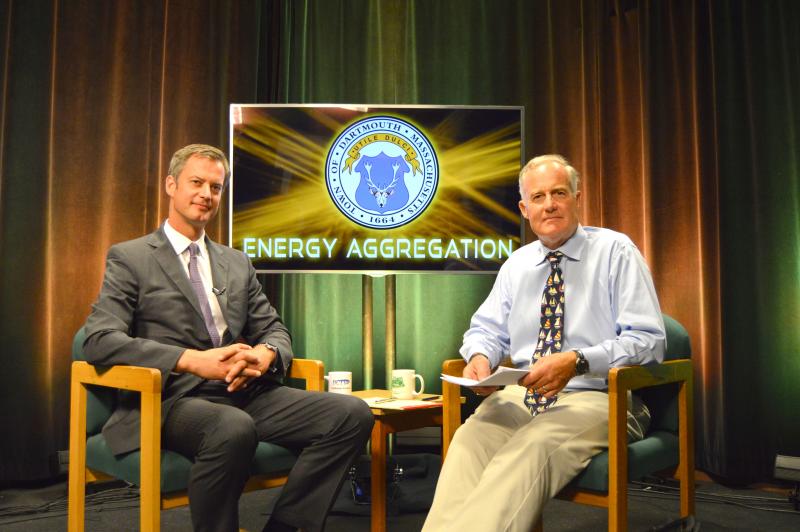Community Electricity Aggregation program finalized
Dartmouth residents will be saving on their energy bills next year.
The Community Electricity Aggregation program cleared its final hurdle this past week when representatives from 23 communities in Massachusetts met to vote on a bidder. The group accepted a 24-month contract that will begin in January 2016.
In a news release from Good Energy, the consulting firm that worked on developing the project, it’s stated that the rate per kilowatt hour for electricity will be fixed at $0.0949/kWh. This will translate into an estimated $15 million in aggregate savings in the region “when compared to the current Eversource and National Grid published winter utility rates.”
Town Administrator David Cressman said this contract means that Dartmouth residents can expect about $90 of savings per household per year on energy bills.
The energy aggregation project, which was approved by a vote during a Special Town Meeting in March, will allow households and businesses in Dartmouth to join other eligible customers in the region to purchase energy at a bulk rate.
There are 225,000 eligible households and business across the 23 communities. The affected towns are Acushnet, Attleboro, Carver, Dartmouth, Dedham, Dighton, Douglas, Dracut, Fairhaven, Fall River, Freetown, Marion, Mattapoisett, New Bedford, Northbridge, Norton, Plainville, Rehoboth, Seekonk, Somerset, Swansea, Westford and Westport.
Since early 2014, Southeastern Regional Planning and Economic Development District (SRPEDD) has been working with Good Energy to establish the program. The plan had to be presented to local governments and pass in Town Meetings throughout the region before it could move forward.
Back in October, the Massachusetts Department of Public Utilities granted approval for the plan, and the 23 communities went to bid soon after.
“I think it’s a real win for the community and a win for the entire region,” said Cressman. “This aggregation group became the largest electricity aggregation group in the Commonwealth. We surpassed the Cape Light Compact.”
The Cape Light Compact, established in 1997, has brought 21 communities together for bulk energy purchasing. It services 200,000 customers.
Representatives from the 23 communities accepted the bid on Nov. 10. Cressman said that a team of lawyers were part of the development stages of the process.
“Very often, when you get electric aggregation contracts, what occurs is you get the bid and then, once you accept the bid, you get a contract to sign and you pretty much have to accept the contract,” said Cressman.
He said that various municipal attorneys reviewed the electric supply agreements prior to issuing the request for bids. This group included lawyers from the City of New Bedford, the Town of Somerset and Dartmouth’s own Assistant Town Counsel Brian Cruise.
“What they did is went through the contract before we sent it out as an RFP (request for proposal) and negotiated with some of these companies over what the contract language would be. Then we appended it to the [proposal],” he said.
Cressman said that extra step does not typically occur during the agreement process for aggregate energy programs.
“I think it’s an important safety net,” he added.
Over the summer, Philip Carr, the business development director for Good Energy, said customers’ energy bills will largely look the same. If power goes out, customers should still reach out to Eversource or National Grid.
Eligible households and businesses will be automatically enrolled in the program. There will be a 30-day period where customers can choose to opt out, and there will not be a termination fee for those who decide to do so.
Customers will also have an option to make some of their purchases of electricity from renewable energy sources. Customers interested in finding out about green energy options should send an email to info@masscea.com or call 844-627-7232.
A show outlining the aggregate energy program is available on DCTV’s YouTube channel.














